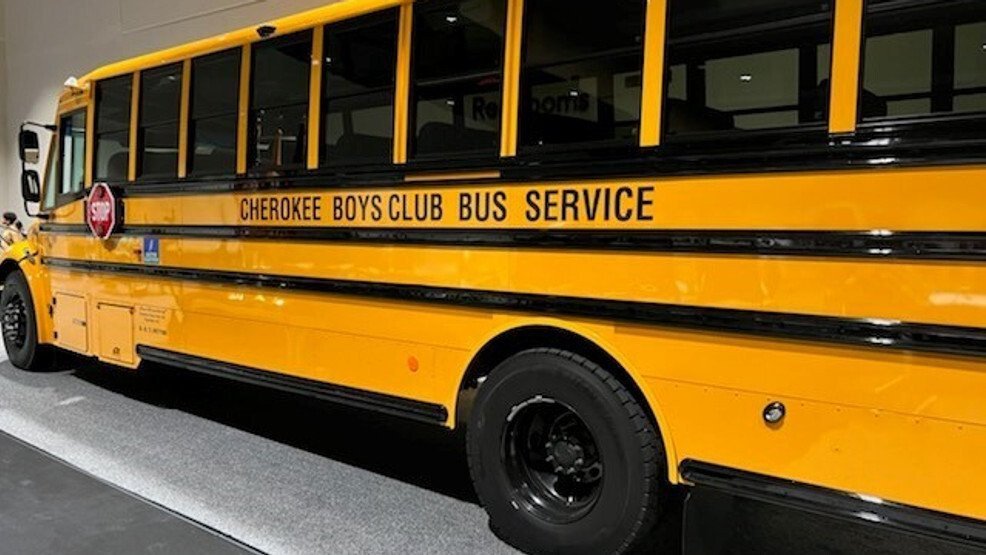Electric school buses could add future energy source, according to environmental report

Electric school buses could be used in the future in North Carolina for energy purposes.
By Jordan Honeycutt
Click here for updates on this story
RALEIGH, North Carolina (WLOS) — Electric school buses could be used in the future in North Carolina for energy purposes.
As soon as next month, billions of federal funding will be available for nation-wide school districts to move to electric school buses.
“Getting to school shouldn’t include a daily dose of toxic pollution,” said Krista Early, Advocate with Environment North Carolina Research and Policy Center. “Transitioning to all-electric buses would first and foremost ensure our children have a clean and healthy ride to school. But beyond that, it also provides an excellent opportunity to make dramatic improvements to our nation’s electric grid, providing significant new benefits for communities.”
A report released Tuesday by the Environment North Carolina Research and Policy Center said that the new transportation could add over 1,693 MWh to the state’s electricity capacity, enough for 34,727 average homes per day.
“Since the U.S. electricity grid was built, the way we produce, distribute and use energy has changed dramatically,” said James Horrox, lead author of the report. “The shift to renewables brings a whole range of new challenges, and battery storage will be crucial in meeting those challenges. Vehicle-to-grid technologies can be a key part of that, and electric school buses are ideally suited to lead the way.”
The report said that:
Lawmakers should provide funding for electric school buses, vehicle-to-grid and energy storage pilot programs and support research to develop and standardize technology, regulations and practices regarding the use of electric vehicles to store and return energy to the grid. Lawmakers should prioritize funding for underserved communities. Utility companies and regulators should establish partnerships with school districts and public officials, help finance electric buses, restructure electricity rates to accommodate electric vehicle technology, and clarify regulations regarding the use of electric vehicles to store and return energy to the grid.
School districts should commit to a full transition to electric buses on a specific timeline and invest in as large a fleet as possible as soon as possible. They should also establish solid collaborative partnerships with utilities from an early stage.
Please note: This content carries a strict local market embargo. If you share the same market as the contributor of this article, you may not use it on any platform.